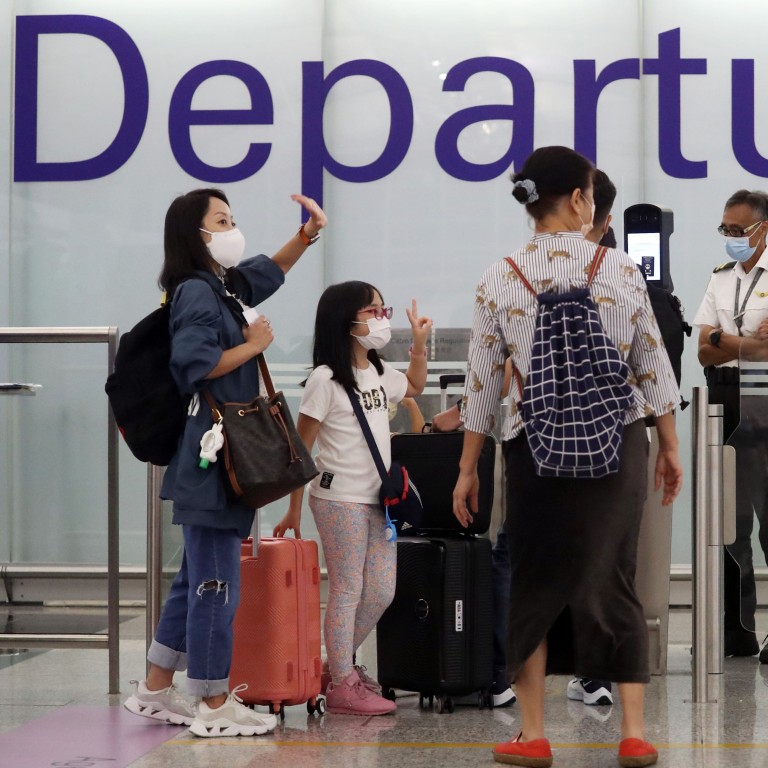
Is the national security law driving a Hong Kong exodus? Not so fast
- Whether emigration is being driven by the security law has yet to be established by data, no matter how eager the international media are to jump to conclusions
- At the same time, other powerful forces are driving migration flows, including the influx of mainlanders
The issue is critically important for Hong Kong’s future. If national security legislation has indeed triggered a rush for the exits, and a significant brain drain, then the issue warrants urgent government attention.
Let’s pause here and reflect. First, I need to put on one side serious reservations about the way the Hong Kong government gathers its population data, and its working assumption that birth and death rates can predict our population trends. I have long argued that Hong Kong’s population has been determined for longer than I have been alive by migration, not birth or death rates.
Put on one side too that lockdowns, restrictions on travel, disruptions to careers and schooling, and the economic harm the pandemic has inflicted may, over the past 18 months, have influenced population or migration data as profoundly as anxieties over the national security law.
An expat exodus is looming fast as Hong Kong’s allure fades
Put bluntly, it would be shocking if there were not a significant number from Hong Kong’s anti-China community actively considering emigration; a deep divide between pro- and anti-China communities in Hong Kong has persisted since the 1984 signing of the Sino-British Joint Declaration.
But considering is not acting. And even action is not final. We learned three significant lessons in the febrile years between the shock of the 1989 Tiananmen crackdown and the 1997 handover, when up to 66,000 people a year obtained the security of a foreign passport (mainly Canadian), with nearly 1 million emigrating from 1984 to 1997, according to Hong Kong Management and Labour.
First, the number that migrated was determined not by how many people wanted to leave, but by the capacity of foreign visa offices to process applications. Many more would have emigrated if visa offices had been willing or able to process applications more speedily.
Second, and to my great surprise at the time, this massive and sustained exodus had no negative impact on the Hong Kong economy whatsoever. On the contrary, the 1980s and 1990s were boom years, only brought to a juddering halt by the Asian financial crisis in 1998.
Amid an exodus, what Hong Kong needs most is unity
Third, a large proportion of emigrants suffered such economic and social hardship in their adopted countries that many – perhaps more than 100,000 – returned to Hong Kong soon after. In short, the grass proved not to be greener in newly adopted countries, whatever the anxieties over life in Hong Kong.
Put these factors together, and I have a strong suspicion that many who are today actively considering emigration will in due course change their minds. Even among those getting on planes to Britain today, many are keeping open their options to return if the austerities of post-Brexit Britain prove too much to bear.
Families with young children may value the opportunity of schooling in Britain, and recent graduates without a career yet established in Hong Kong may well have nothing to lose by starting a career there. So, too, may teachers and nurses, whose skills are in short supply in Britain. But others will think more than twice.
Whether emigration is being driven by the national security law has yet to be seen with any clarity, and it may take a year or more for reliable data to emerge, no matter how eager the international media are to reach headline-ready conclusions. At the same time, there are other powerful forces driving migration flows that need to be reckoned with.
In short, Hong Kong has throughout our living memories consistently been a community shaped by powerful migratory forces. The national security law may be a new, powerful force for change, but the “lies, damned lies and statistics” so far available to us don’t provide any clear picture.
David Dodwell researches and writes about global, regional and Hong Kong challenges from a Hong Kong point of view



